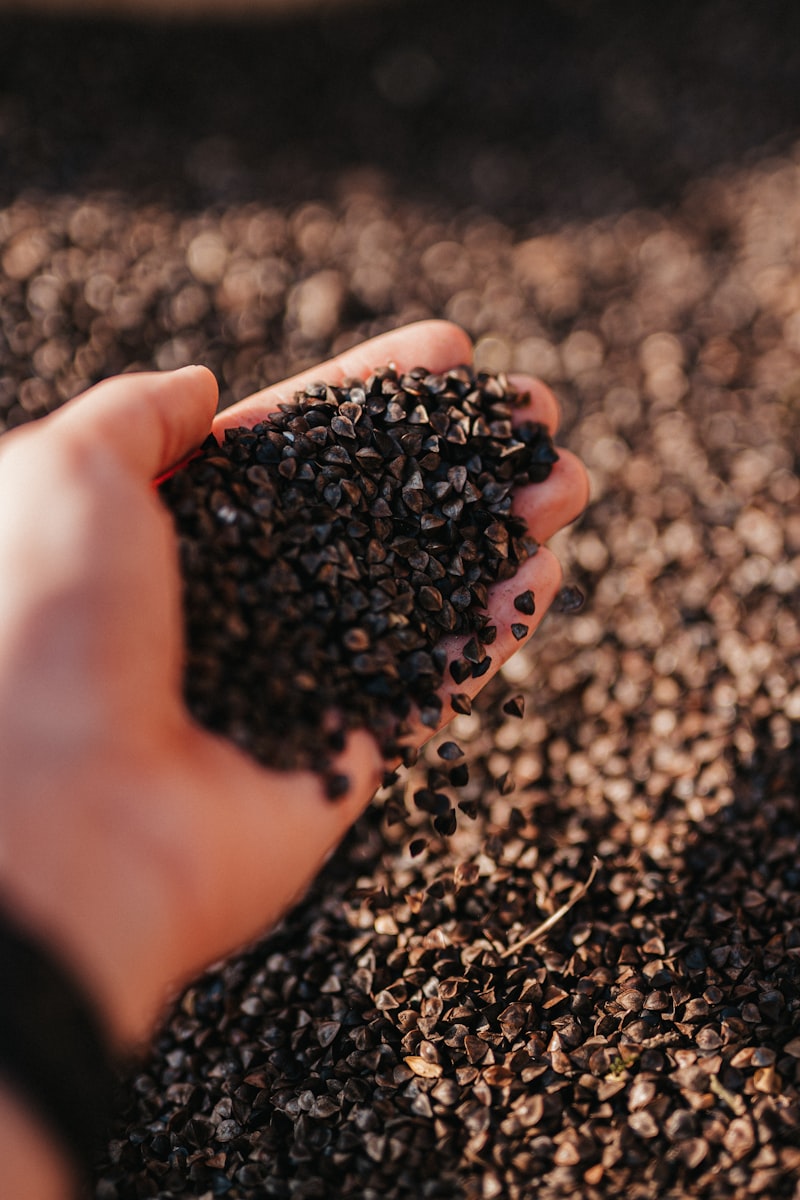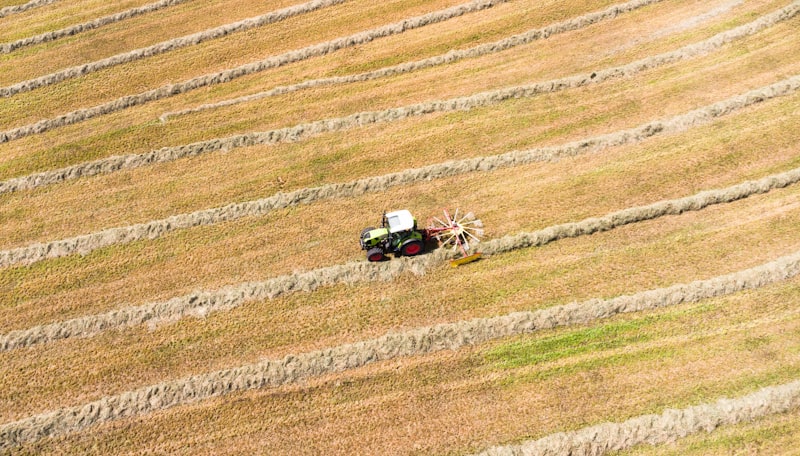One of the most exciting advancements is the Internet of Things (IoT), where sensors embedded in the soil can relay data in real-time to farmers’ smartphones. These sensors can track soil moisture levels, temperature variations, and even detect the presence of pests. This real-time data empowers farmers to make informed decisions swiftly, preventing crop losses and maximizing productivity.
Artificial intelligence (AI) plays a crucial role in shaping the future of agriculture. AI algorithms can analyze vast amounts of data collected from farms to predict crop yields, optimize irrigation schedules, and suggest the best times for planting and harvesting. This predictive capability not only enhances efficiency but also reduces the environmental impact of farming practices.
Biotechnology is another frontier that holds immense promise. Genetically modified organisms (GMOs) designed to be more resilient to pests, diseases, and environmental stressors can help secure food production in the face of climate change. Furthermore, advancements in biotechnology are leading to the development of crops with enhanced nutritional profiles, addressing global nutrition challenges.
Robotics is transforming agriculture by automating repetitive tasks such as weeding, harvesting, and sorting. Robots equipped with sophisticated vision systems can pick ripe fruits with precision and handle delicate produce without damage. This automation not only addresses labor shortages but also improves the overall quality of harvested crops.
Blockchain technology is being explored to enhance traceability and transparency across the agricultural supply chain. Imagine being able to scan a QR code on a package of vegetables in a supermarket and instantly knowing which farm it came from and its journey through the supply chain. This level of transparency can help build trust between consumers and farmers while ensuring food safety and quality.
The future of tech in agriculture is bright and full of potential. From AI and IoT to biotechnology and robotics, these advancements are set to transform farming into a more efficient, sustainable, and resilient industry. As these technologies continue to evolve, they promise to address global food security challenges and pave the way for a more sustainable future.
Revolutionizing Farms: How AI and Robotics Are Shaping Agriculture’s Future
AI in farming isn’t about replacing humans; it’s about enhancing their capabilities. Take planting, for instance. AI-powered machines can plant seeds at the perfect depth and spacing, ensuring each plant has the best chance to thrive. This level of precision not only boosts yield but also conserves resources like water and fertilizer, making farming more sustainable than ever before.
Moreover, robotics plays a pivotal role in this agricultural revolution. Robots equipped with advanced sensors can autonomously weed fields, identifying unwanted plants and precisely targeting them with minimal herbicide use. This reduces labor costs and minimizes environmental impact, aligning with the global push towards eco-friendly farming practices.
But it’s not just on-field operations that benefit from AI and robotics. In livestock management, these technologies monitor animal health and behavior in real-time, alerting farmers to potential issues before they escalate. This proactive approach not only improves animal welfare but also optimizes production efficiency.
The integration of AI and robotics isn’t without its challenges, of course. Farmers need access to reliable connectivity and the expertise to harness these technologies effectively. However, as adoption grows and costs decrease, more farmers worldwide are embracing these innovations to stay competitive in an increasingly complex global market.
From Drones to Data: The High-Tech Makeover of Farming

These drones aren’t just for show—they’re equipped with advanced sensors that can detect early signs of crop stress or nutrient deficiencies. Farmers can then intervene promptly, applying fertilizers or pesticides only where needed, minimizing waste and maximizing yield. It’s precision agriculture at its finest, where every decision is data-driven and results are finely tuned.
But it’s not just about drones. The entire process—from planting to harvesting—is being transformed by data analytics. Imagine a farmer with a smartphone, checking real-time weather forecasts and soil moisture levels. Armed with this information, they can schedule irrigation more efficiently, saving water and ensuring crops get just the right amount of hydration.
Moreover, data analytics is helping farmers make smarter decisions season after season. By analyzing historical yield data alongside soil health metrics, farmers can fine-tune their crop rotation strategies for maximum productivity. It’s like having a crystal ball that predicts which crops will thrive best in each field, optimizing resources and profitability.
This high-tech approach isn’t just a luxury—it’s becoming a necessity. With a growing global population, farmers are under pressure to produce more food using fewer resources. The integration of technology—from GPS-guided tractors to automated irrigation systems—is making agriculture more sustainable and resilient in the face of climate change.
The marriage of drones and data is transforming farming into a high-tech industry where efficiency meets innovation. As technology continues to evolve, so too will our ability to feed the world while safeguarding the planet. Welcome to the future of farming—where the fields are greener and the harvests are smarter than ever before.
Sustainable Harvest: Innovations in Agri-Tech Set to Transform Food Production
Ever wondered how technology is reshaping the way we grow our food? Imagine a world where farms are not just fields of crops, but hubs of innovation and sustainability. That’s exactly what the latest advancements in agri-tech aim to achieve. From precision farming to vertical gardening, these innovations are poised to revolutionize food production as we know it.
Precision farming, for instance, takes farming to a whole new level of accuracy. By using satellite imagery and sensors, farmers can pinpoint exactly where and when to plant, irrigate, and harvest crops. This not only maximizes yields but also minimizes waste, making farming more efficient and sustainable than ever before.
Vertical gardening is another game-changer in agri-tech. Imagine skyscrapers filled not with offices, but with thriving gardens growing everything from leafy greens to strawberries. By stacking layers of crops vertically, these gardens optimize space and resources, all while reducing the carbon footprint of transporting food from farm to table.
But perhaps the most groundbreaking innovation in sustainable food production is aquaponics. This method combines aquaculture (fish farming) with hydroponics (growing plants in water). In a beautifully symbiotic relationship, fish waste provides nutrients for the plants, while the plants filter and purify the water for the fish. It’s a closed-loop system that produces both protein-rich fish and fresh vegetables with minimal waste and water usage.
These innovations are not just futuristic dreams—they’re already transforming farms around the world. Farmers are becoming tech-savvy entrepreneurs, using data analytics and AI to make informed decisions that boost productivity and environmental stewardship. The result? A more resilient food system that can sustainably feed a growing global population.
As we look to the future of food production, it’s clear that agri-tech is paving the way towards a more sustainable harvest. By embracing these innovations, we can ensure that our farms are not just fields of crops, but thriving ecosystems of innovation and sustainability. So, next time you bite into a crisp apple or savor a fresh salad, remember the incredible journey that brought that food to your table—a journey driven by the ingenuity of agri-tech.
Smart Farming: IoT and Automation Leading the Agricultural Renaissance

IoT, or the Internet of Things, refers to the network of interconnected devices that can communicate with each other and send data over the internet. In smart farming, these IoT devices include sensors that monitor soil moisture, temperature, and nutrient levels. They also encompass drones and satellites that provide real-time images of crops and fields, allowing farmers to detect issues like pest infestations or nutrient deficiencies early on.
Automation plays a crucial role alongside IoT in smart farming. Automated systems can perform tasks that traditionally require human intervention, such as planting, watering, and harvesting crops. This reduces labor costs and allows farmers to optimize their operations more efficiently.
One of the significant benefits of IoT and automation in agriculture is precision farming. Instead of applying water, fertilizers, and pesticides uniformly across entire fields, smart farming technologies enable farmers to apply them only where and when they are needed most. This not only conserves resources but also minimizes environmental impact and maximizes crop yields.
Picture this: a farmer receiving a notification on their smartphone alerting them to a drop in soil moisture levels in a specific part of their field. With a few taps, they can instruct an irrigation system to deliver the precise amount of water needed to that exact location. This level of precision and control is unprecedented in traditional farming methods.
Moreover, IoT devices can gather vast amounts of data over time, allowing farmers to analyze trends and make data-driven decisions. By harnessing this data, farmers can improve their planting schedules, optimize fertilizer use, and even predict crop yields more accurately.
Beyond Soil and Sun: The Role of Biotechnology in Farm Yield Enhancement
Biotechnology isn’t just a buzzword; it’s a game-changer. It’s all about using living organisms or their products to improve agriculture. Picture genetically modified crops that can resist pests or tolerate droughts. That’s not science fiction anymore; it’s happening in fields around the globe. These crops are like superheroes, equipped with powers to withstand challenges that traditional crops can’t handle.
Think about it like this: if traditional farming is a sprint, biotechnology is the marathon runner who’s built for the long haul. It’s about sustainability and resilience. By enhancing the genetic makeup of crops, biotechnology helps farmers produce more with less. That means fewer resources like water and pesticides, and more food on the table.
But biotechnology isn’t just about the crops themselves; it’s about the entire ecosystem of farming. It’s about making agriculture smarter and more efficient. From soil health to nutrient management, biotechnology touches every aspect of the farm. It’s like giving Mother Nature a high-five and saying, “Let’s do this better.”
And here’s the kicker: biotechnology isn’t stopping here. Researchers and scientists are constantly pushing the boundaries, exploring new ways to boost yields and tackle challenges like climate change. It’s about staying one step ahead, adapting to a changing world, and ensuring that we can feed a growing population sustainably.
Frequently Asked Questions
How does precision farming benefit the agriculture sector?
Precision farming enhances agricultural productivity and sustainability through advanced technologies like GPS, sensors, and data analytics. It optimizes resource use, reduces input wastage, improves crop yields, and minimizes environmental impact.
What technologies are shaping the future of agriculture?
Explore how advanced technologies such as AI, IoT, and robotics are revolutionizing agriculture, enhancing efficiency, sustainability, and crop yields.
What role will robotics play in agriculture in the coming years?
Discover how robotics is set to revolutionize agriculture with increased efficiency and precision in tasks such as planting, harvesting, and monitoring crops. Learn about the impact of automation on labor savings and sustainability, shaping the future of farming.
How can artificial intelligence improve farming practices?
Discover how artificial intelligence enhances farming through advanced data analysis, precision agriculture techniques, and automated processes to optimize crop yields, reduce resource usage, and increase efficiency.
What are the environmental impacts of tech advancements in agriculture?
Learn about the environmental impacts of technological advancements in agriculture, including effects on soil health, water usage, biodiversity, and greenhouse gas emissions.


